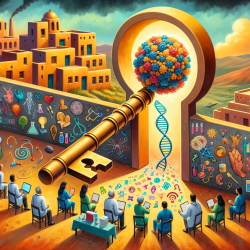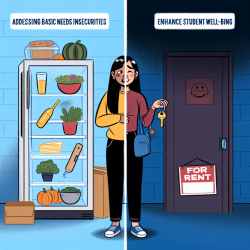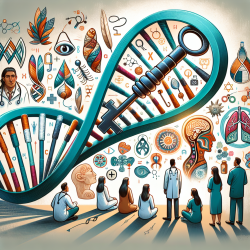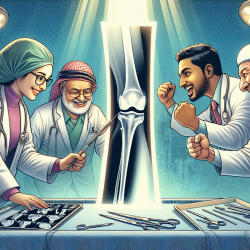Introduction
In the rapidly evolving world of healthcare, precision medicine (PM) stands out as a transformative approach. By tailoring medical treatment to the individual characteristics of each patient, PM has the potential to revolutionize healthcare outcomes. However, the dissemination and adoption of PM are not uniform across all populations. A recent study titled "Barriers and Facilitators to Dissemination and Adoption of Precision Medicine Among Hispanics/Latinos" sheds light on the unique challenges and opportunities faced by the Hispanic/Latino community in accessing PM.
Understanding the Barriers
The study highlights several barriers that impede the adoption of PM among Hispanics/Latinos. These include:
- Lack of Awareness: Many participants had never heard of PM or had limited understanding of its benefits.
- Financial Constraints: The high cost of genetic testing and treatment can be prohibitive, especially for uninsured individuals.
- Language Barriers: Limited English proficiency can hinder effective communication with healthcare providers.
- Cultural Norms: Cultural beliefs and norms may discourage the adoption of unfamiliar medical procedures.
- Distrust of Government: Concerns about privacy and the potential misuse of genetic information can deter participation.
Facilitators to Adoption
Despite these challenges, the study identifies several facilitators that can enhance the adoption of PM:
- Family Support: Family plays a crucial role in healthcare decision-making within Hispanic/Latino communities.
- Information in Spanish: Providing educational materials in Spanish, using plain language and graphics, can improve understanding.
- Trust in Healthcare Providers: Trust in doctors, nurses, and well-known hospitals can encourage acceptance of PM.
- Community Engagement: Community organizations can serve as trusted sources of information and support.
- Altruism: A desire to contribute to societal benefits and scientific advancement can motivate individuals to participate in PM.
Implications for Practitioners
For practitioners working with Hispanic/Latino populations, understanding these barriers and facilitators is crucial. Here are some actionable steps practitioners can take:
- Develop culturally and linguistically tailored educational materials about PM.
- Engage with community organizations to build trust and disseminate information.
- Offer assistance programs for uninsured individuals to access genetic testing.
- Foster strong patient-provider relationships to build trust and encourage open communication.
Conclusion
The journey towards widespread adoption of precision medicine in Hispanic/Latino communities is fraught with challenges but also filled with opportunities. By addressing the identified barriers and leveraging the facilitators, healthcare practitioners can play a pivotal role in ensuring that the benefits of PM are accessible to all. For those interested in delving deeper into this topic, the original research paper offers valuable insights and can be accessed here.










